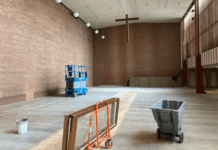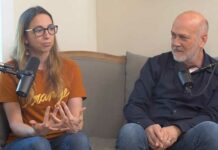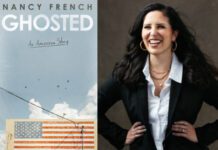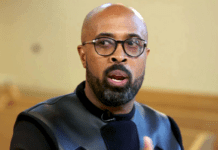Both protests involved or were connected to the Rev. William Barber II, the North Carolina pastor who started the Moral Monday movement with demonstrations in his home state and later co-founded the Poor People’s Campaign, restarting the effort organized by King shortly before he was assassinated.
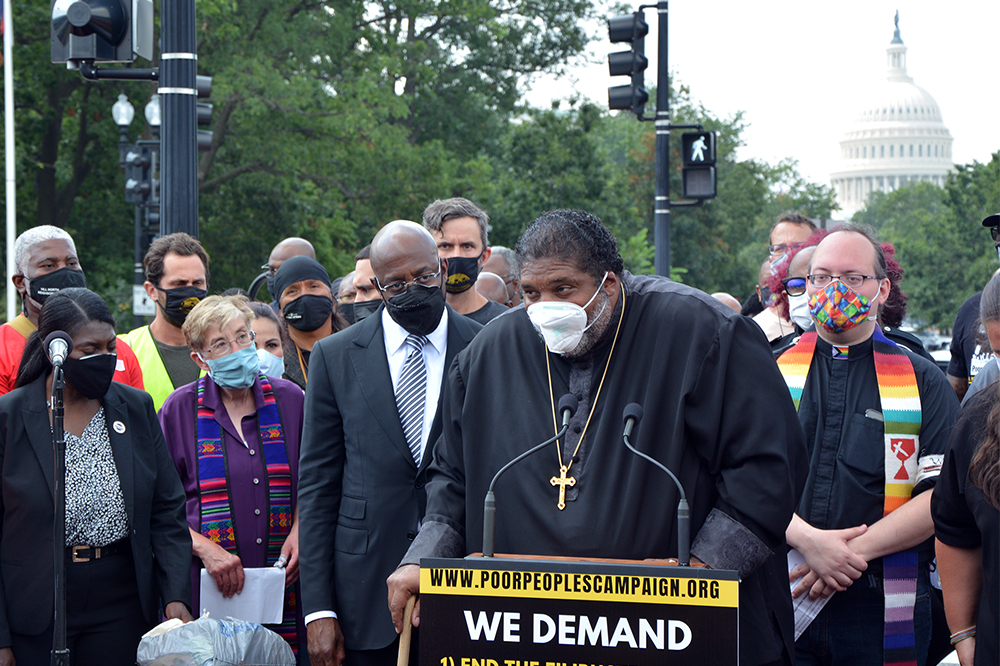
Democratic Sen. Raphael Warnock, center, stands behind the Rev. William Barber as Barber speaks during a Poor People’s Campaign demonstration in Washington, in Aug. 2021. RNS photo by Jack Jenkins
Warnock and Barber regularly operate in each other’s orbits. The North Carolinian has preached at Warnock’s church, while Warnock appeared at one of Barber’s Poor People’s Campaign protests last August. They share several core concerns as well, primarily voting rights bills, such as the John Lewis Voting Rights Act and the For the People Act, which were the subject of Warnock’s first speech on the Senate floor.
But as Warnock has become a political insider, the nature of the duo’s relationship has changed. At a Poor People’s Campaign protest last year on Capitol Hill, Warnock arrived and appeared prepared to address the gathering, but Barber barred him from the microphone, citing the group’s policy of prohibiting politicians from speaking at their demonstrations. It’s a divide Barber has seen work in the other direction as well: President Joe Biden made a point to laud the Poor People’s Campaign while running for president but has evoked frustration from Barber since the 2020 election for, among other reasons, remaining silent on requests to host a White House meeting with anti-poverty advocates.
Even so, Barber and other faith-rooted advocates have Warnock’s ear. Barber told RNS he spoke with Warnock in November, shortly before the Georgia runoff. He pressed the senator to, should he win reelection, urge Democratic leadership to hold votes on voting rights bills before the next Congress is sworn in, as well as votes to protect abortion rights and raise the federal minimum wage.
“Because of his election, we have seen that the South can now be broken through,” Barber said, “but there needs to be an action that goes along with the election.”
The Senate is unlikely to pass any of the bills, even with a Democratic majority, but Barber noted Republicans will control the House of Representatives in the new year, making this month the best option for Democrats in the near-term.
“When God gives you a gift, use it,” he said.
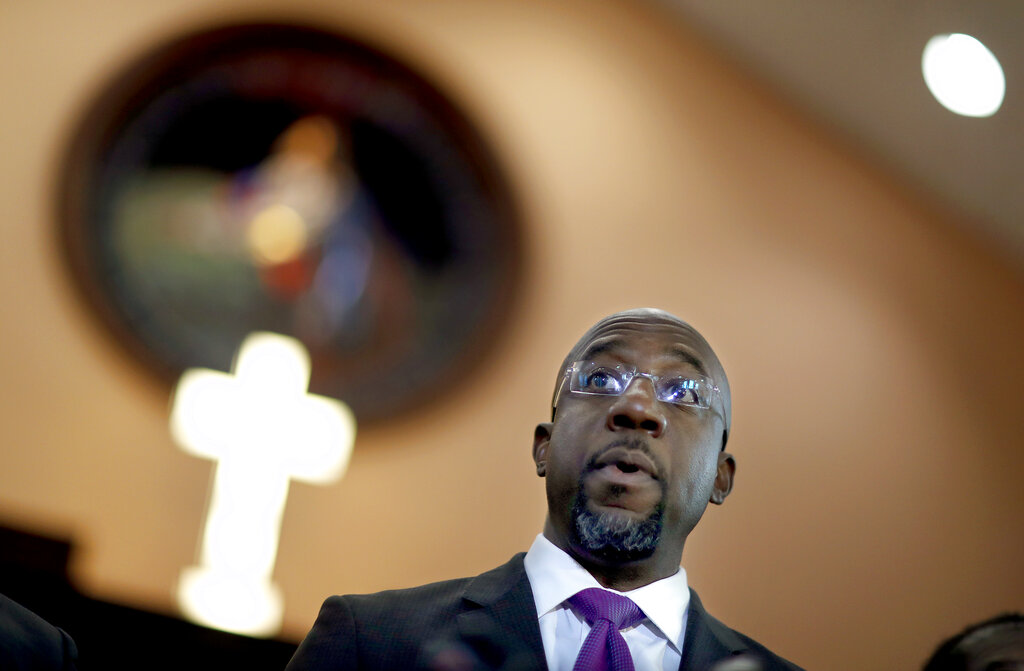
FILE – In this Jan. 12, 2018, file photo the Rev. Raphael Warnock speaks at Ebenezer Baptist Church in Atlanta. (AP Photo/David Goldman, File)
Warnock, in keeping with a long history of Southern Black pastors’ activism on the vote, talks about voting as “sacred” and has echoed a common spiritual rationale for voting rights as a recognition that each human is made in the image of God. He mentioned voter suppression in his victory speech this week, noting many Georgians stood in long lines to cast their ballot.
“Just because they endured the rain and the cold and all kinds of tricks in order to vote doesn’t mean that voter suppression does not exist,” he said.
Adrienne Jones, an assistant professor of political science at Morehouse College in Atlanta, Warnock’s alma mater, said that a comprehensive voting rights agenda pushed by Black pastors and other advocates could result in pragmatic gains for Democrats in the South. New voting laws in Georgia and elsewhere have been widely decried by Democrats as suppressing voting by people of color, she noted, and neither the trend toward greater restrictions nor the uproar they spark is likely to abate as Southern states become increasingly competitive.
“If you want to have a democratic system where voting is an option,” Jones said, noting that Republican-led laws have made voting harder for many, “then you’ve got to prioritize the voting system and have it not be fettered by systems that result in biased outcomes.”
Black Protestants make up the lion’s share of Democratic voters in Southern states, and Obama and particularly Joe Biden owe their presidential nominations to Black religious voters in the Palmetto State, who helped keep Obama’s 2008 primary campaign afloat and rescued Biden from a string of defeats. Both men mustered sizable faith outreach efforts in South Carolina, now on track, at Biden’s urging, to replace Iowa as the first state to vote in the Democratic presidential primaries.



